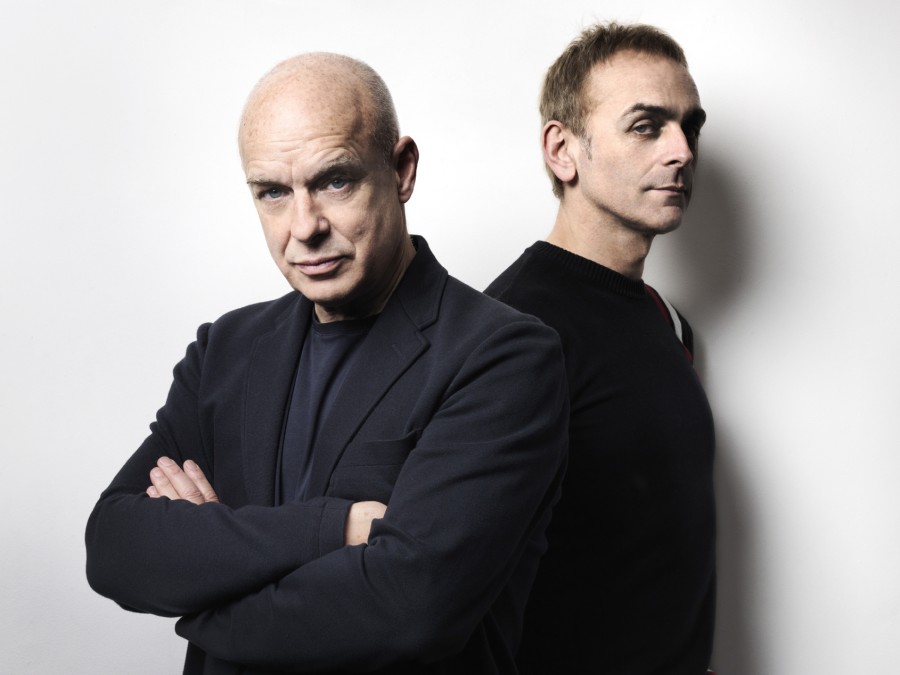Ever since his days as a feather-boa-wrapped synth strangler in Roxy Music in the early 1970s, Brian Eno has — beyond his own solo career — been a sonic abettor and collaborator. After leaving Roxy, Eno conspired with Talking Heads to infuse the band’s wiry punk with Fela Kuti‘s Afrobeat on 1980’s Remain in Light. (He also helped frontman David Byrne craft twitchy, sampledelic dance music with their collaborative My Life in the Bush of Ghosts.) Eno then enabled a fierce Irish post-punk band to embrace stadium rock and stardom, producing U2 classics like The Joshua Tree and Achtung Baby. More recently, he added an edge and a sense of cool to the likes of Coldplay.
That collaborative spirit continues with Someday World — recorded with Underworld member/vocalist Karl Hyde — which includes 12 other players, including Roxy Music’s own Andy Mackay. For many U.S. listeners, Underworld remains a one-hit wonder, responsible for the raging techno of “Born Slippy” from the Trainspotting soundtrack. Yet Hyde not only crafted dance tracks and populist techno with the group, but also folded in traces of indie rock and ambient tones, suggesting an omnivorous appetite similar to that of Eno. Eno and Hyde have joined forces before; the former worked with Underworld for 2011’s “Beebop Hurry” and last year remixed Hyde’s solo single “Slummin’ It for the Weekend.” But the nine songs here make for a more satisfying symbiosis.
In a standout track like “Daddy’s Car,” both men draw on a lifetime love of African highlife. Over an ebullient and skittering polyrhythmic backbeat worthy of Remain in Light, Eno adds sun-bright horn lines, bubbling synths and piano, clearing just enough room for Hyde’s New Romantic vocals. Elsewhere, Hyde’s soft delivery evokes memories of Talk Talk’s Mark Hollis, and when the music gets jazzy and slippery (as in “When I Built This World”), Eno and Hyde bring to mind the U.K. band Level 42.
A maximal spirit informs Someday World, so that even in a song whose chorus commands “Strip It Down,” the isolated synth bass undulating at the start soon dovetails into arpeggios, jittery percussion, guitar glissades and a subtle yet stunning piano line. The piano is handled by a newcomer named Fred Gibson, who also contributed to the album’s production alongside Eno. Only 22, Gibson offers input here that suggests a new talent who might someday make for a great collaborator himself.
9(MDAxNzk1MDc4MDEyMTU0NTY4ODBlNmE3Yw001))
Playlist
Brian Eno & Karl Hyde, 'Someday World'



